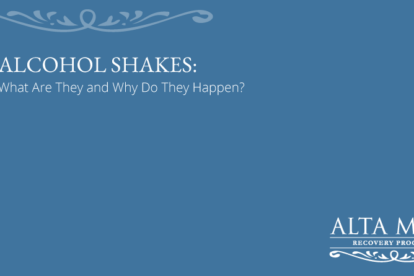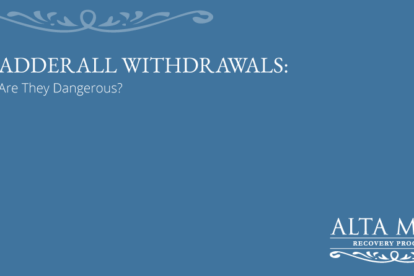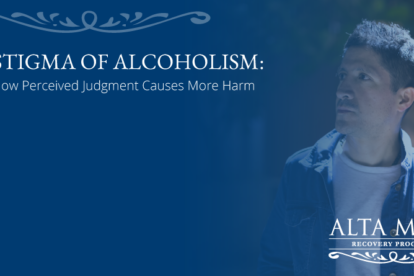
Heroin Relapse Prevention
Heroin relapse rates reported in research are frustratingly high. Relapse occurs because of cravings, withdrawal, social triggers and cues, and lack of healthy coping mechanisms. All of these issues can be addressed with relapse prevention strategies to significantly lower the risk of heroin relapse in patients who have received or are going through recovery. Using medications, increasing self-efficacy, addressing mental health issues, and developing healthy coping mechanisms and trigger avoidance can all help prevent relapse.
Relapse is often a part of the recovery process, but living with heroin relapse doesn’t have to be inevitable. There are steps that can be taken, treatment programs, therapy, and even medications that can be used to help minimize the risk that someone in recovery from heroin use disorder will relapse.
It is essential when seeking heroin addiction treatment, to look for a program that makes relapse prevention a priority.
How Common is Heroin Relapse?
Overcoming any substance use disorder is challenging, and relapse rates reflect this. For any type of drug, relapse rates are estimated to be between 40 and 60 percent. This is similar to the rates of relapse for chronic medical conditions, like type 2 diabetes and high blood pressure. This is why more experts now consider addiction to be a chronic illness that must be managed with ongoing, long-term heroin addiction treatment.
For drugs that have the highest addiction potential, like heroin and other opioids, relapse rates can be even higher. The estimated heroin relapse rate and overall opioid relapse rate can be found in studies to be anywhere from 60 percent to 90 percent.
Relapse Prevention in Treatment
The best treatment programs for heroin use disorder include specific relapse prevention programming. The standard model for relapse prevention is based on cognitive-behavioral principles and includes several important elements:
- Recognizing heroin relapse triggers
- Developing coping strategies for triggers
- Increasing self-confidence
- Learning and identifying signs of heroin relapse
- Developing strategies for managing a relapse
Studies have made it very clear that not only is treatment after detox necessary for preventing relapse or reducing the risk, but also that plans that include specific relapse prevention strategies can significantly lower the risk of using again.
Medications for Heroin Relapse Prevention
Heroin use disorder is one of few addictions that can be treated successfully with specific medications used alongside therapy and relapse prevention programs. Methadone has long been used as a maintenance therapy to help heroin addicts avoid using again, while managing withdrawal and reducing cravings. But now there are other medications that can help prevent heroin relapses.
One of these is buprenorphine, which is a partial opioid agonist. This means it partially stimulates the same receptors that heroin does, so that it can reduce withdrawal symptoms and reduce cravings for the drug without producing the sense of euphoria heroin does. Another drug used to reduce relapse rates is naltrexone. This is an opioid antagonist, so it blocks the action of heroin. Someone on naltrexone who relapses and tries to use heroin will get no effect from it.
The Importance of Mental Health in Avoiding Heroin Relapse
Substance use disorders and mental illnesses often co-occur. Someone with a mental illness, like depression, may turn to drugs to try to cope with negative feelings and then develop a substance use disorder. It is also possible that drug use can exacerbate or contribute to mental illness development in someone already predisposed to it.
Because these two issues are so often interlinked, addressing mental health and diagnosing and managing any mental illnesses is a crucial part of preventing heroin relapses. One study followed nearly 250 heroin users for over 30 years and found that participants who received mental health care had better long-term outcomes. Also important for avoiding relapse, the study found, was self-efficacy, or a belief in one’s own abilities to achieve sobriety. This is important because it means that mental health care to improve self-efficacy, even in people without specific mental illnesses, can help reduce relapse.
Find Freedom from Heroin Addiction
Alta Mira is a Safe, Comfortable Place to Recover
Aftercare, Support, and Lifestyle Changes
Understanding heroin relapse means knowing that fighting against it is a lifelong challenge. Treatment, even with relapse prevention, is not a guarantee that relapses won’t occur. Aftercare in the form of treatment alumni groups, sober gatherings, and support groups, is a way to extend heroin addiction rehab and relapse prevention strategies indefinitely.
Also important is making real and lasting lifestyle changes. People in recovery from heroin use disorder can benefit from changing social groups, spending more time with loved ones and supportive friends, eating well and getting regular exercise, and practicing mindfulness and other healthy stress management techniques. These lifestyle changes, after a good inpatient heroin rehab and relapse prevention program, can help those in recovery stay sober and avoid relapse.






